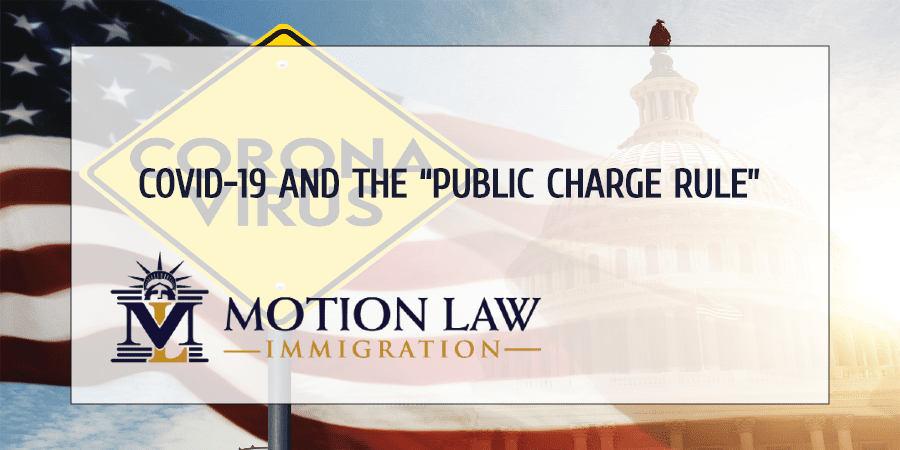COVID-19 and the “Public Charge Rule”

The “Public Charge Rule”
The US Department of Homeland Security (DHS) is the entity in charge of protecting the country from any possible threat.
In February, 2020, DHS implemented a policy called the “Public Charge Rule”. This rule has existed for over 100 years in the US, however, the new changes were directly approved by the Supreme Court of Justice.
The rule states that any request to enter and reside in the country must be denied if the immigrant represents a possible public charge.
The policy also applies to immigrants who want to change their status or apply for a Green Card or permanent residence.
That means the request could be denied if:
Initial request for entry or residence in the country
- The immigrant has physical disabilities and cannot contribute economically to the country (this part of the rule has several exceptions).
- The applicant does not have financial solvency to self-sustain for an initial period of time in the US (or does not have a financially solvent sponsor).
- The immigrant can be a “public charge” because he could take advantage of health and social benefits.
- The applicant does not have the necessary studies to work in the country.
- The immigrant has family members in the US who use public benefit resources.
- The applicant does not have any previous work experience in his/her homeland (it depends on the age of the applicant).
Status change requests or Green Card application
When immigrants already reside in the US and want to change the permit’ status or apply for the Green Card, their request could be denied if:
- The applicant used benefits from public funds during 12 months in the last 36 months before applying.
- The applicant used public benefits such as Medicaid, food programs, or food stamps.
- The applicant has not paid taxes while residing in the US.
- The immigrant has used housing assistance or received money from a public benefit agency.
The repercussions of the “Public Charge Rule”
The results of this rule vary and depend on different scenarios.
On the one hand, DHS tries to protect the country by allowing only immigrants who can contribute to socio-economic growth. That is a very positive aspect of the rule.
On the other hand, many immigrants have decided to remain illegally in the country because they know that their permanent residence’ petition will be denied due to the fact that they have used public benefits in the last 36 months.
Currently, with the unstoppable outbreak of the Coronavirus, public health is in danger and the government made decisions regarding the “Public Charge Rule” and the pandemic.
COVID-19 and the “Public Charge Rule”
When the pandemic hit the US, one of the main concerns of immigrant rights advocates was that immigrants would avoid going to medical centers or accepting social assistance because of the “Public Charge Rule” and they would be carriers of the virus due to fear of deportation.
However, the US Citizenship and Immigration Service (USCIS) decreed in March, 2020, that coronavirus-related treatments, prevention or public aid will not be taken into account for the “Public Charge Rule”.
This means that anyone can receive help and medical attention in the midst of the pandemic and that will not affect future applications for change of status or permanent residence.
Any help an immigrant receives during the Coronavirus outbreak will not be proof for inadmissibility in the US.
These are excellent news for all immigrants who want to extend their residence permit or obtain permanent residence.
They can go to health centers and opt for financial aid during the economic crisis that COVID-19 generated.
It is important to clarify that USCIS offers this exception in the rule only for public benefits related to Coronavirus.
In other words, if someone tries to take advantage and uses benefits such as the Children’s Health Insurance Program (CHIP), they would be breaking the rule and could be inadmissible due to public charge.
Seek help wisely
If you experience any symptoms related to Coronavirus, please go to a medical center or call an emergency line.
You should also be very wisely advised on current immigration processes.
That is why, if you have any questions about an immigration issue or relating to a case you may have currently in progress, then please don’t hesitate to contact us for a FREE Phone Consultation with one of our expert immigration attorneys.
Simply call Motion Law today at: (202) 918-1799.